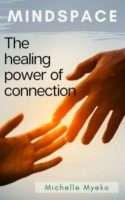Recently I had the worst depressive episode of my adult life. It was isolating, exhausting and filled me with hopelessness. Sleep stopped having its restful qualities. I would go to bed tired and wake up exhausted. My depression demanded absolute isolation. In my misery I demanded total solitude so I stopped reaching out to friends, didn’t reply to texts and neglected my social obligations.
To onlookers, it seemed like I was narcissistic and self-centred, only caring about myself. This went on for weeks and the weeks turned into months until I felt that it would be easier to not be. This was not my first dealing with depression. I’ve had clinical medicated depression all of my adult life. When medicated I am highly functional, I’m an affectionate friend, a doting partner, an adoring parent. However sometime in February I ran out of my fluoxetine script but I was feeling very well. Depression for me seemed like something I’d suffered from in the past, I felt so light that the heaviness that comes with depression was a distant, vague memory. I had also recently reconnected with God so I felt like I had prayed my sad away. So when I no longer had my medication it didn’t seem urgent, I was doing well, I was emotionally strong. Then later the country went into lockdown and getting the medication was shifted off my to-do list, other health concerns became more central. Life became about sanitising and keeping socially distant. However like an unwanted enemy, the depression crept back in.
My depression manifests in three major ways. It starts off with isolation which was already the case because of lockdown. Secondly I lost my ability to self-command, I just could not make myself do the things I needed to do. The worst example of this was one particular night, when I woke up in the middle of the night with a full bladder but I could not for the life of me make myself take the few steps to the bathroom to find relief. On this night I stayed awake, uncomfortable, my bladder too full to allow sleep. This one incident told me with complete certainty that the depression was back.
I’m also terribly indecisive when depressed, I find it hard to problem-solve. I will sit with a problem and overanalyse it without moving to the crucial part of taking the action to sort it out. I remember having a dead light bulb in my bathroom and for weeks the bathroom stayed dark when all it needed to be fixed was for me to call my grown up son to change it.
Depression is a horrible mental illness in that it corrodes one of the fundamental ways in which we are human. It takes away our connectedness by demanding solitude from the sufferer. So while I was suffering, I was an island unable to seek and find solace from my fellow men.
Language is littered with proverbs and adages about cooperation. These truisms resonate because they are crucial for human survival. Phrases like “united we stand, divided we fall” almost become cliché because they are so true. Every time I almost succumb to my depression it is because the depression acts like a predator in the wild, separating me from my herd before going for my jugular. This year in 2020 was the closest I’ve been to having an attempt on my life, my saving grace was reconnecting with my tribe. I got better because I reached out to people and I spoke about how I was feeling.
I remember texting my former boss in the middle of the night and letting her know that I was drowning. We hadn’t spoken in months and she made a lunch appointment with me and I went. During her cappuccino and chocolate brownies, I broke down and she saved me. She made me recognise that the depression was back and that it was demanding medication. She paid for my medication and currently I’m on my fifth week of taking it and after a horrible adjustment period, things are beginning to look up. I feel lighter, I’m more functional, more connected to people.
Human beings as mammals are perhaps the most social in the animal kingdom because we need each other for survival. In fact we need each other so much that human beings use isolation punitively because we all understand that in order for any human being to thrive, they need connection with others. Depression will always demand solitude and in order to defeat it the sufferer will always have to seek connection with others. Talking about problems DOES help. A problem shared is a problem halved.
***
Read about one writer’s experience with the stigma associated with mental health here
Tell us: Do you think it’s important to talk about our problems with others? Why or why not?


